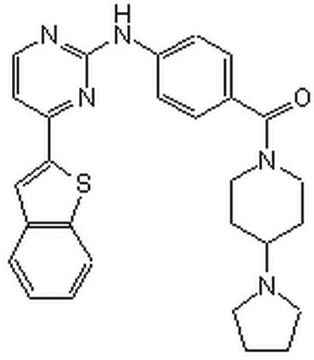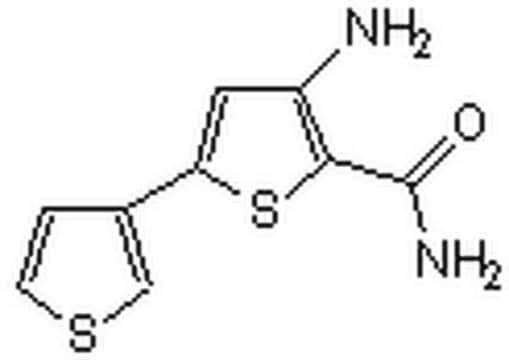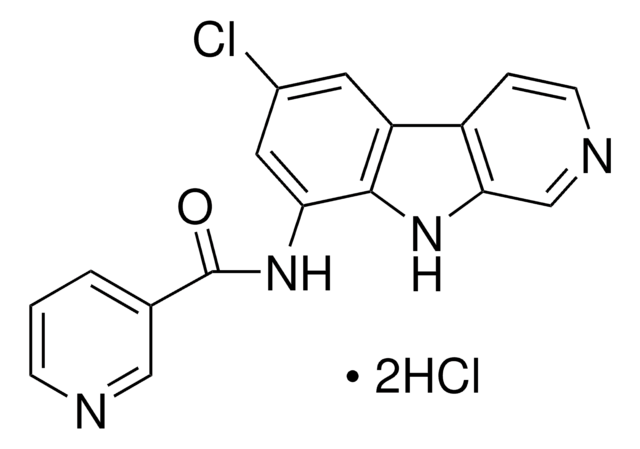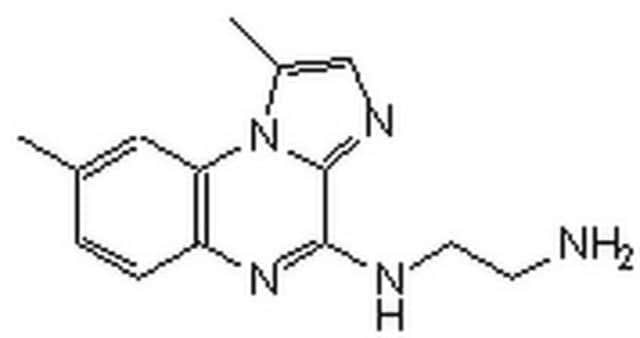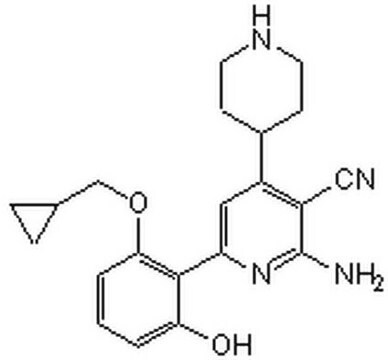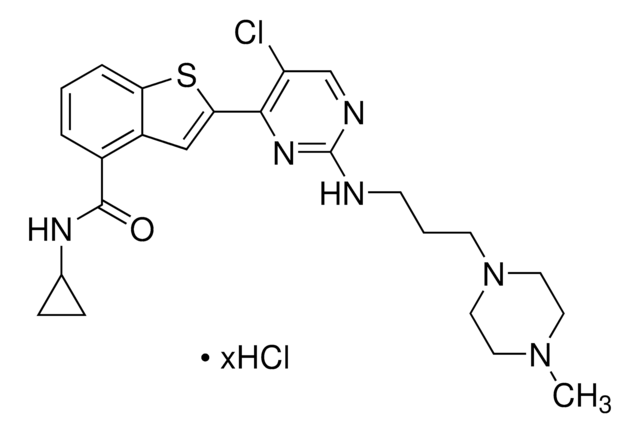401481
IKK-2 Inhibitor IV
The IKK-2 Inhibitor IV, also referenced under CAS 507475-17-4, controls the biological activity of IKK-2. This small molecule/inhibitor is primarily used for Inflammation/Immunology applications.
Synonym(s):
IKK-2 Inhibitor IV, [5-( p-Fluorophenyl)-2-ureido]thiophene-3-carboxamide, TPCA-1
About This Item
Recommended Products
Quality Level
assay
≥95% (HPLC)
form
solid
manufacturer/tradename
Calbiochem®
storage condition
OK to freeze
protect from light
color
white to pale yellow
solubility
DMSO: 10 mg/mL
shipped in
ambient
storage temp.
2-8°C
InChI
1S/C12H10FN3O2S/c13-7-3-1-6(2-4-7)9-5-8(10(14)17)11(19-9)16-12(15)18/h1-5H,(H2,14,17)(H3,15,16,18)
InChI key
SAYGKHKXGCPTLX-UHFFFAOYSA-N
General description
Biochem/physiol Actions
IKK-2
Packaging
Warning
Reconstitution
Other Notes
Karin, M., et al. 2004. Nat. Rev. Drug Discov.3, 17.
Roshak, A.K., et al. 2002. Inflamm. Res.51, S4.
Legal Information
Storage Class
11 - Combustible Solids
wgk_germany
WGK 3
Certificates of Analysis (COA)
Search for Certificates of Analysis (COA) by entering the products Lot/Batch Number. Lot and Batch Numbers can be found on a product’s label following the words ‘Lot’ or ‘Batch’.
Already Own This Product?
Find documentation for the products that you have recently purchased in the Document Library.
Our team of scientists has experience in all areas of research including Life Science, Material Science, Chemical Synthesis, Chromatography, Analytical and many others.
Contact Technical Service
